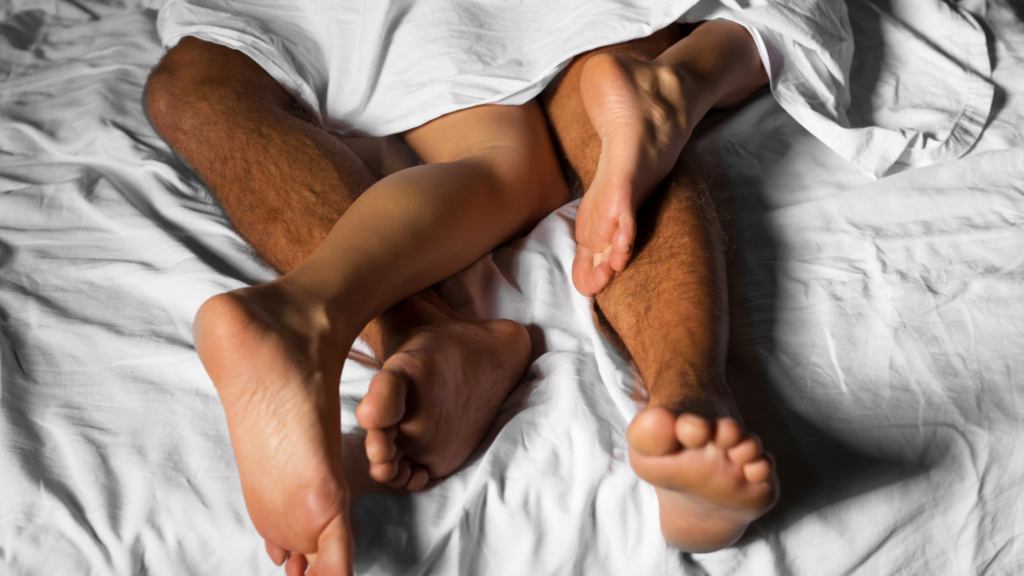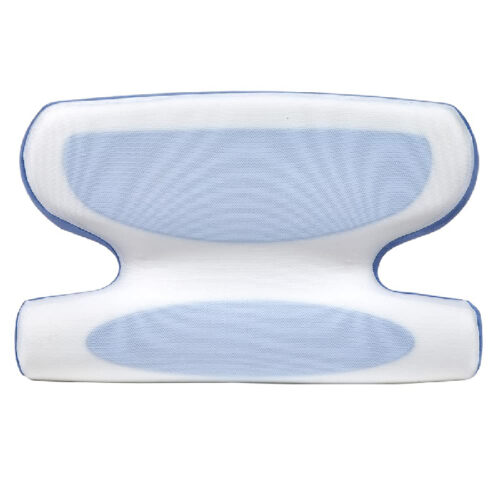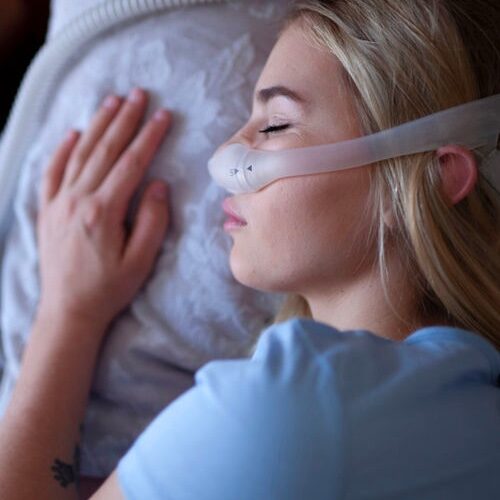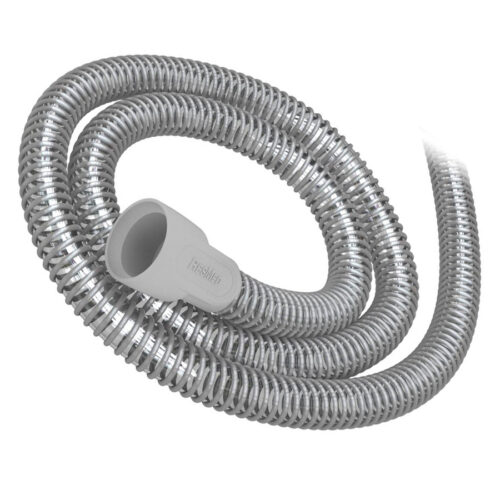Summary
- Sleep deprivation adversely affects sexual health in men, leading to issues such as Erectile Dysfunction (ED) and decreased libido.
- Lack of adequate sleep can disrupt hormonal balance.
- Chronic sleep deprivation can result in reduced testosterone production, increased cortisol levels, and impaired dopamine function, contributing to sexual problems.
- Strategies to address sleep deprivation and restore sexual health.
Sleep is not just a period of rest; it’s a crucial component of overall well-being, including sexual health. For men, sleep deprivation can significantly affect sexual desire and performance, leading to conditions such as Erectile Dysfunction (ED). Let’s delve into how sleep deprivation impacts sexual health and what steps can be taken to address it.
The Connection Between Sleep and Sexual Health
Sleep deprivation, often defined as consistently getting less than the recommended 7-9 hours of sleep per day for adults, can disrupt various bodily functions essential for sexual health. One of the most noticeable impacts is on libido—the desire for sexual activity. When sleep-deprived, individuals may experience a decrease in sexual desire, making it more challenging to engage in intimate activities.

Understanding Erectile Dysfunction (ED)
ED, the inability to achieve or maintain an erection sufficient for sexual intercourse, is a common concern among men. Sleep deprivation can exacerbate this condition in several ways:
- Reduced Libido: Sleep deprivation can dampen sexual desire, making individuals less interested in engaging in sexual activities.
- Erectile Function: Lack of sleep can directly affect a man’s ability to achieve and sustain an erection. Without adequate rest, the body may struggle to perform optimally during sexual arousal.
Hormonal Imbalance and Sleep Deprivation
The hormonal balance in the body plays a critical role in sexual function. Sleep deprivation can disrupt this balance by affecting hormones such as testosterone, cortisol, and dopamine:
- Testosterone: Sleep is essential for the production of testosterone, a hormone vital for libido and overall sexual health. Chronic sleep deprivation can lead to decreased testosterone levels, impacting sexual desire and performance.
- Cortisol: Sleep deprivation often triggers an increase in cortisol, known as the stress hormone. Elevated cortisol levels can interfere with testosterone production and increase stress levels, further exacerbating sexual issues.
- Dopamine: This neurotransmitter is involved in the brain’s reward system and plays a crucial role in sexual arousal. Sleep deprivation can impair dopamine function, reducing sexual motivation and satisfaction.
Statistics about Sex Drive and Sleep Deprivation
A recent study highlighted the importance of sleep for sexual function. The study focused on 207 men who had mild to severe sleep apnea. Sleep apnea is a condition that causes repeated cessations in breathing which requires awakening to begin breathing again. It often leads to moderate to severe sleep deprivation. The findings of the study are statistics are:
- 61% of men in the study suffered from ED
- 72% of men with severe sleep apnea has ED
- Persons with severe sleep apnea had significantly lower testosterone levels than men with mild sleep apnea
- Other studies have been remarkably consistent with their findings:
- Several other studies citing the ED sleep apnea link at 40%, 46%, 61% (referenced above), 64%, and 69%
- Another study found that in 531 men, patients who slept 4 hours or less had half as much testosterone as patients who sleep 8+ hours.Source Data: https://info.ancsleep.com/blog/why-sleep-is-so-important-for-sex
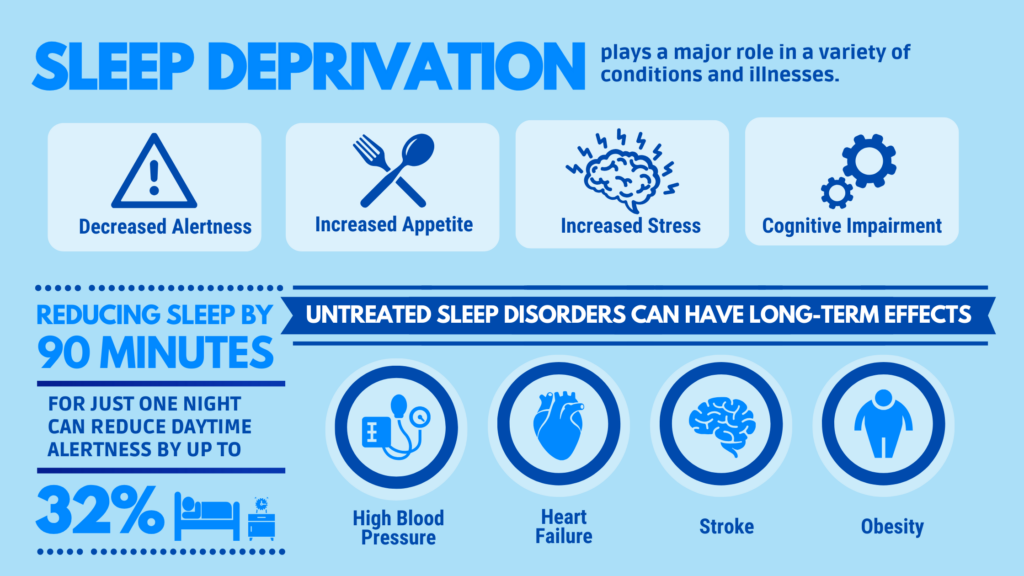
Addressing Sleep Deprivation and Restoring Sexual Health
If you’re experiencing sleep deprivation and its effects on sexual health, it’s essential to take proactive steps to address the issue:
- Prioritize Sleep: Make sleep a priority by establishing a consistent bedtime routine and creating a sleep-friendly environment. Aim for 7-9 hours of quality sleep each night to support overall well-being, including sexual health.
- Seek Professional Help: If sleep disorders are contributing to your sleep deprivation, seek guidance from sleep health professionals. They can provide personalized strategies and treatments to improve sleep quality and address underlying issues.
- Repay Sleep Debt: Repaying sleep debt requires consistent, restful sleep over time. Unlike financial debt, it cannot be resolved with a single night of extended rest. Focus on establishing healthy sleep habits to gradually eliminate the effects of sleep deprivation.
Sleep deprivation can have significant implications for sexual health, affecting libido, erectile function, and hormonal balance. By prioritizing quality sleep and seeking appropriate support, individuals can mitigate the effects of sleep deprivation and improve their overall well-being, including sexual health. If you’re struggling with sleep deprivation and its impact on your sexual health, consider reaching out to ISD Health Solutions for expert guidance and support. Your journey to better sleep and sexual wellness begins with understanding the importance of restorative rest.
References:
American Thoracic Society www.thoracic.org/patients
American Heart Association http://www.heart.org/HEARTORG/Conditions/More/MyHeartandStrokeNews/Sleep-Apnea-and-HeartDisease- stroke_UCM_441857_Article.jsp
Harvard Healthy Sleep http://healthysleep.med.harvard.edu/railroad-sleep/problems/apnea
Sleep Foundation https://sleepfoundation.org/ask-the-expert/sleepapnea-and-heart-disease
ANC Sleep https://info.ancsleep.com/blog/why-sleep-is-so-important-for-sex



